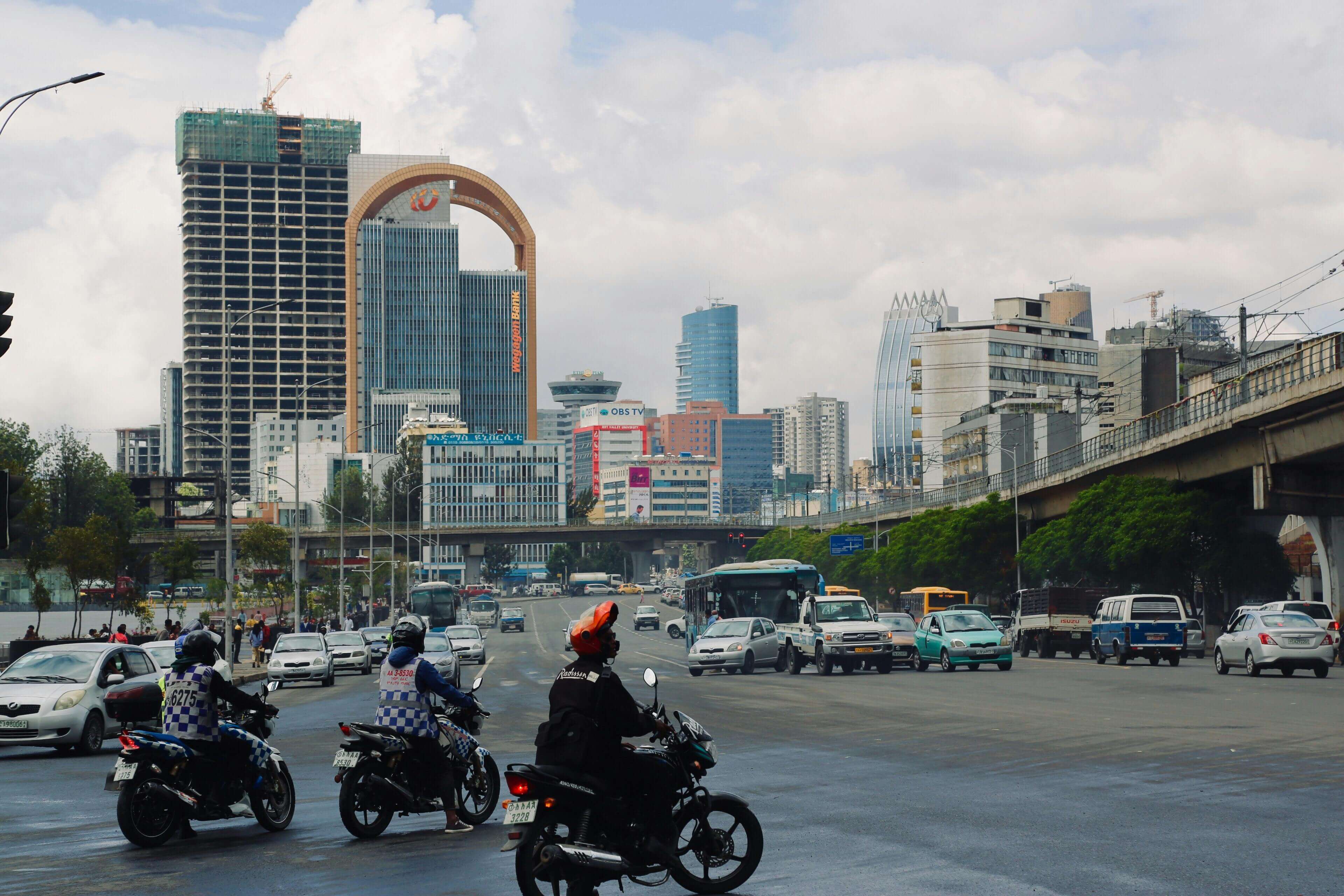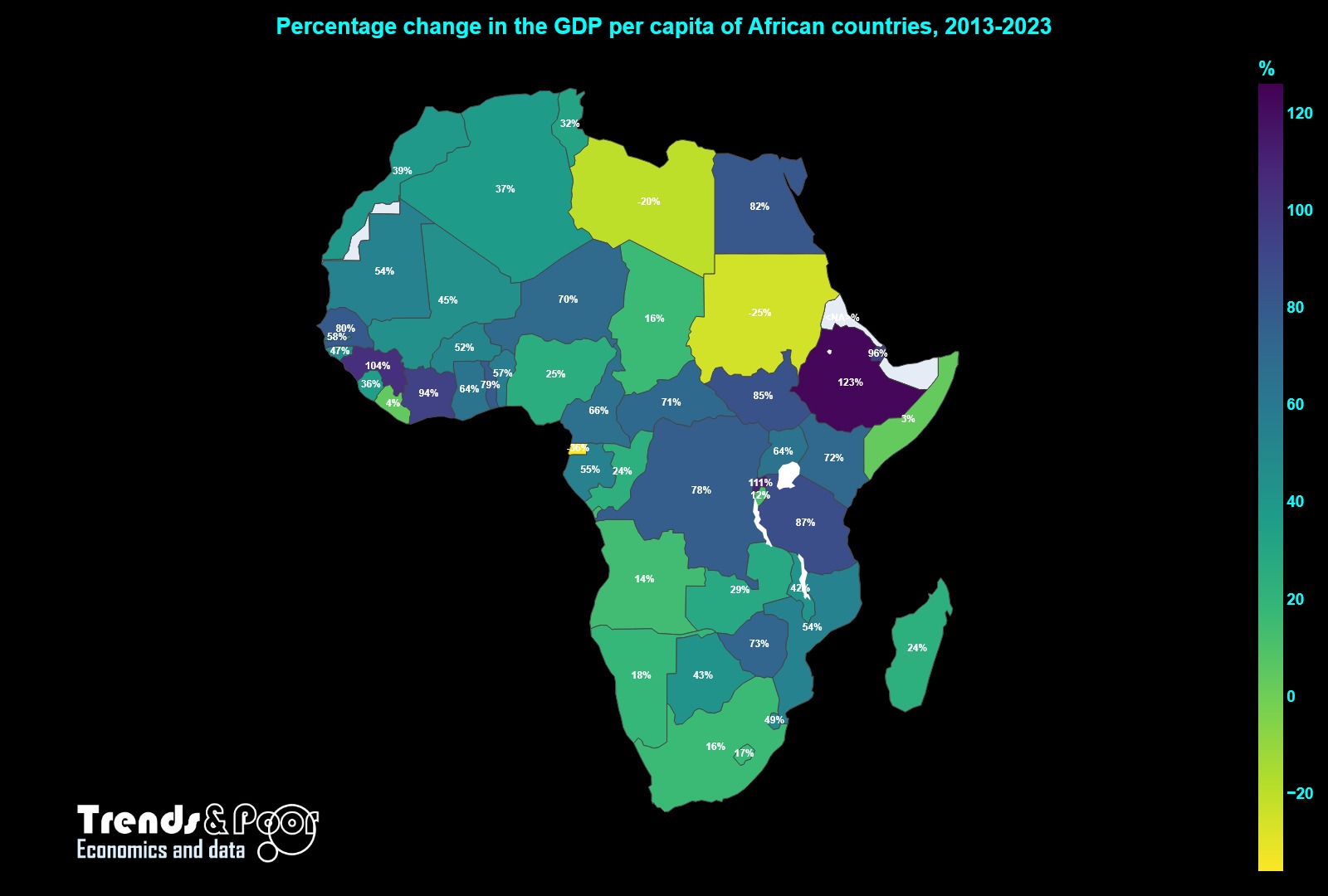Leading nations
Ethiopia led the way, with a 123.21% increase in their GDP per capita. This means the income per capita more than doubled between 2013 and 2023. Besides Ethiopia, only two other African nations, Burundi and Guinea achieved similar but lesser magnitude in increasing two-fold the average national wealth per inhabitant, respectively at the rates of 110.79% and 102.71%. Ivory Coast and Tanzania fill up the ranking for the top 5 fast growing African nations of the last decades, with respectively 94.11% and 87.1% growth rate over the period. These countries have implemented in the last, profound reforms marked by active industrial policies and economic and social institutions improving the business environment and political advances ensuring a relatively strong political stability. However, it’s worth nothing none of Africans economies outpaced China (126.26%) and India (123.79%) during that period. Even Vietnam displayed a 111.21% growth rate, surpassing all African nations except Ethiopia. This relative performance of African nations outlines the imperial necessity for structural transformations that will boost their contribution to world trade and drive growth levels and persistency like those achieved by their counterpart in South Asia.



